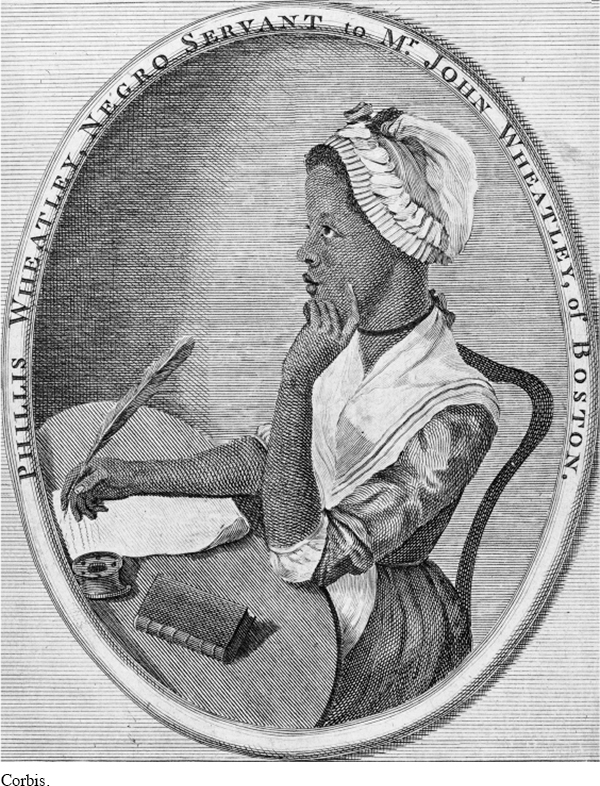The American Promise: Printed Page 162
The American Promise, Value Edition: Printed Page 148
The American Promise: A Concise History: Printed Page 172
Rebelling against Slavery
News of the battles of Lexington and Concord spread within days. In Virginia, Thomas Jefferson observed that “a phrenzy of revenge seems to have seized all ranks of people,” causing the royal governor of Virginia, Lord Dunmore, to remove all gunpowder from the Williamsburg powder house to a ship, out of reach of angry Virginians. He also threatened to arm slaves, if necessary, to ward off attacks by colonists. This threat proved effective for several months.
In November 1775, as the crisis deepened, Dunmore issued an official proclamation promising freedom to defecting able-
In the northern colonies as well, slaves clearly recognized the evolving political struggle with Britain as an ideal moment to bid for freedom. A twenty-

From north to south, groups of slaves pressed their case. Several Boston blacks offered to fight for the British in exchange for freedom, but General Gage turned them down. In Maryland, a planter complained that blacks impatient for freedom had to be disarmed of about eighty guns along with some swords. In North Carolina, white suspicions about a planned slave uprising led to the arrest of scores of African Americans who were ordered to be whipped by the revolutionary committee of public safety.
By 1783, when the Revolutionary War ended, as many as twenty thousand blacks had voted against slavery with their feet by seeking refuge with the British army. About half failed to achieve the liberation they were seeking, instead succumbing to disease, especially smallpox, in refugee camps. But some eight thousand to ten thousand persisted through the war, and later, under the protection of the British army, left America to start new lives of freedom in Canada’s Nova Scotia or Africa’s Sierra Leone.
The American Promise: Printed Page 162
The American Promise, Value Edition: Printed Page 148
The American Promise: A Concise History: Printed Page 172
Page 163REVIEW How did enslaved people in the colonies react to the stirrings of revolution?